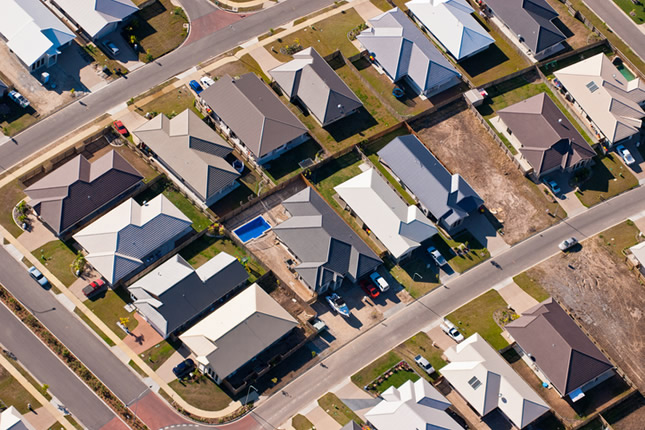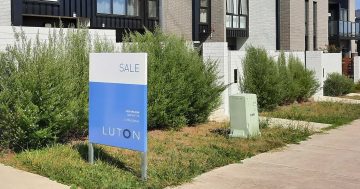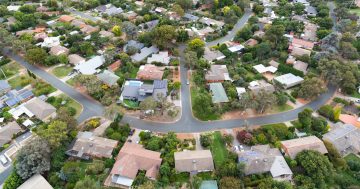
One of my friends was trying to buy a house. She started in June, and only just purchased one two weekends ago. For months she complained: “there are just not enough houses on the market – I need somewhere by Christmas and don’t know what I can buy.”
Not enough houses in Canberra? Prices going up and up and up? Is this the same city still reeling from massive public service job cuts? Aren’t there always an abundance of properties on the market during spring? What is happening?
As previously reported in The Riot-ACT, prices in the ACT are on the upwards trend. And there is an increasing number of apartments being built and being put on the market.
I asked my long-standing real estate agent, Dennis Vlandis from LJ Hooker Belconnen, who confirmed there is indeed a shortage of quality housing being offered for sale in Canberra. He assured me that houses on good sized blocks of land in well canopied streets would do well. “Interest rates are low and most people are holding on to their houses rather than sell them,” he said. “Where else are people going to put their money?” According to Dennis, the situation is slightly different with apartments and townhouses, but even with apartments and townhouses the oversupply issue is gradually being corrected.
According to Ron Bell, Chief Executive Officer of the Real Estate Institute of ACT (REIACT), for most of the peak spring selling season there were only 2,400 properties listed on Allhomes, compared with 4,000 the same time last year. More recently, it has risen marginally to 2,800. And most of the properties are apartments and townhouses.
The problem as Mr Bell sees it is a lack of ready to build land being put on the market by the ACT Government relative to demand.
“The ACT is growing by 15,000 people a year, which creates a demand for 6,500 new residences each year,” he says.
Mr Bell assesses the ACT Government’s strategy is to promote townhouses and apartments, despite the fact that many people – especially those with children – want a traditional backyard. Purchasers in suburbs such as Moncrieff and Throsby desired having a backyard so much that they were willing to buy now and wait two years to get a decent road. Bell says that the shortage of houses on the market had pushed the medium price in Canberra up from the high $500,000s to almost $700,000 “in a matter of months”.
Terry Ryder from Hotspotting.com disagrees that Canberra is seeing meteoritic price rises. Comparing four different reports, he concluded that prices in Canberra had grown moderately at between 4-5% in the last twelve months. And there was still an oversupply of apartments, with at least one data source arguing that the medium price of apartments had actually fallen over the last twelve months.
And according to Mr Ryder, price rises, moderate or otherwise, are not being caused by interest rate rises. “Interest rates are hugely overrated as an influence on the market,” he said. “If you look at the figures for property price rises, at the moment only Sydney and Melbourne are really booming.” Instead, price rises in particular locations are usually driven by the strength of the economy and the strength of infrastructure spending. And supply.
Talking about supply, in this Canberra is in a unique situation because of how new releases are drip fed by the ACT Government. As a result, Mr Ryder assesses that prices in Canberra for houses and land are relatively expensive. “It is a bit of a scandal,” said Mr Ryder when talking about how the ACT Government is not releasing enough land relative to demand. “Tiny blocks of land are going for high prices.”
So is owning a house and land merely a dream for many Canberrans? And assuming they can find a property on the market, are Canberrans taking on too much debt in pursuit of this lifestyle? Would we say, see another, subprime meltdown with Canberrans struggling to pay for their mortgages? According to MLC financial adviser and principal Michael Miller, purchase prices in Canberra involve big numbers. Accordingly, many buyers – particularly first-time buyers – have large loans.
“Anybody who has a large outstanding loan balance is exposed if interest rates go up, and especially so if their budget only includes the minimum repayments right now,” Mr Miller says.
While he cannot say for certain if or when interest rates would go up, he advises mortgage holders to make additional payments to provide a buffer that could be drawn on in the future.
Serina Huang is a food writer, frugalista and loves property. She has been investing in Canberra property for 15 years. Having just paid of her mortgage this year, she is now (somewhat crazily) looking to sell and perhaps rent for a while. She is watching the Canberra real estate market carefully.




















